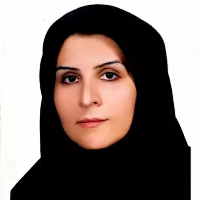Social Ethics and Urban Management of Qazvin in Qajar Period
This paper examines the process the urban management of Qazvin during the Qajar period. The study, based on the main sources of this period, has shown how the modern urban management was rebuilt, based on the order inherited from the past, but failed to achieve significant success because of the lack of social morals between the people. From the Constitutional Revolution to the time of the coup of 1921, there was not any significant achievement too. From the coup to the extinction of the Qajar dynasty, efforts were made to create a new order in Qazvin's social and urban management, which seemed remarkable in comparison to the past. The purpose of the article is to show that modern urban management is a topic that is meaningful in relation to social ethics and other new civilization institutions. The main question of the article is why, with the description of the efforts of the Qazvin city managers, the achievements of this issue were not significant?
-
Relations between Saudi Arabia and Iran during Pahlavi II
Naser Esmati Nazoki, Masomeh Gharadaghi *, Mohammad Yousefi Joybari, Manocher Samadivand
Journal of Contemporary Socio-Political Developments in Iran, -
Grafting between Shariat and constitutionalism from the point of view of Gharavi Naini
Hamed Mohseni Azar, Manouchehr Samadivand *, Masoume Qara Daghi, Reza Nasiri Hamed
Journal of Sociology Studies, -
The economic approach of Mozaffari period periodicals towards the economic situation and the need for commercial and industrial modernization of Iran (1906-1895)
Farahnaz Bahrampor, *, Rahim Shohratifar
Journal of Institute for humanities and cultural studies, -
The role of roads in the development of commercial activity based on the documents of TejaratKhaneh Ettehadieh(Qajar period),
Roghayeh Aghabalazadeh *, Hosseyn Abadian
Journal of Institute for humanities and cultural studies, -
Challenges and Strategies of Access to Pahlavi Period Documents
Hamed Iranshahi *, Hosein Abadyan, Bagherali Adelfar, Hojjat Fallah Toutkar
Journal of Iranian Islamic Period History, -
A Narrative of land and politics in the second pahlavi
Reza Nejadnaghi, *, Naser Sedghi, Manijeh Sadri
Iranian Journal of Political Sociology,




